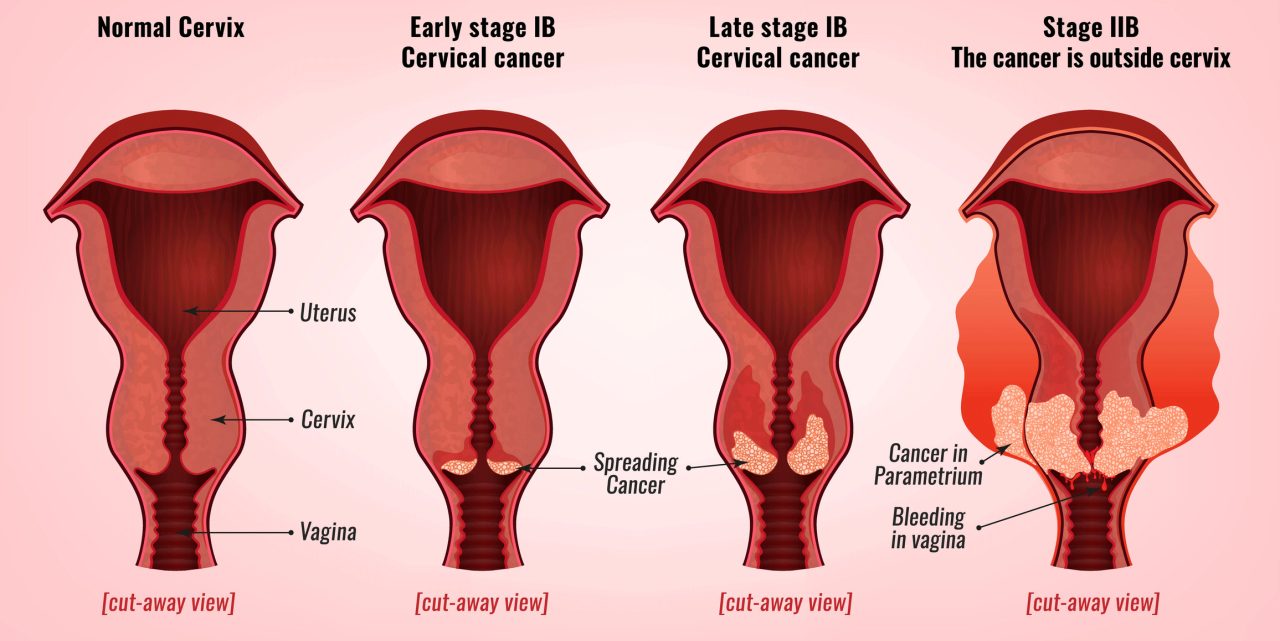Cervical Cancer Stages

Cervical cancer stages determine how much cancer is in your body, where it is, and if it has spread. Treatments depend on the four stages of cervical cancer.
If you are diagnosed with cancer of the cervix (the lower, narrow part of the uterus that connects the uterus to the vagina), your doctor will determine the stage of the cancer before your treatment begins. Cervical cancer stages can involve a variety of tests, including imaging studies, to determine how much cancer is in your body and where it is located.
The stages of cervical cancer are given designations from the earliest stage 0, which is virtually always curable, to stage IV, refering to advanced cancer that has spread. However, there are different sub-categories within each stage, depending on specific information revealed about a malignancy during the staging of cervical cancer.
YOU MIGHT ALSO LIKE: Tests for Cervical Cancer
Why staging of cervical cancer is important
Doctors refer to the stages of cervical cancer to plan treatment — different stages of the disease typically need different treatment protocols for the best result. Although every case of cervical cancer has individual factors, such as a patient’s age and overall health, doctors consider when it comes to treatments, cervical cancers at the same stage usually have the same treatments and similar prognoses, according to the American Cancer Society.
Cervical cancer stages also help cancer specialists (oncologists) predict a likely outcome, such as whether a cure or remission is likely. Referring to a specific stage of cervical cancer helps a doctor describe the extent of the malignancy when discussing a case and treatment with other healthcare professionals involved in a patient’s care. In addition, doctors and researchers use the staging of cervical cancer to study cancer treatments for different stages of cervical cancer and measure outcomes.
Updated:
March 18, 2020
Reviewed By:
Janet O’Dell, RN